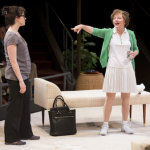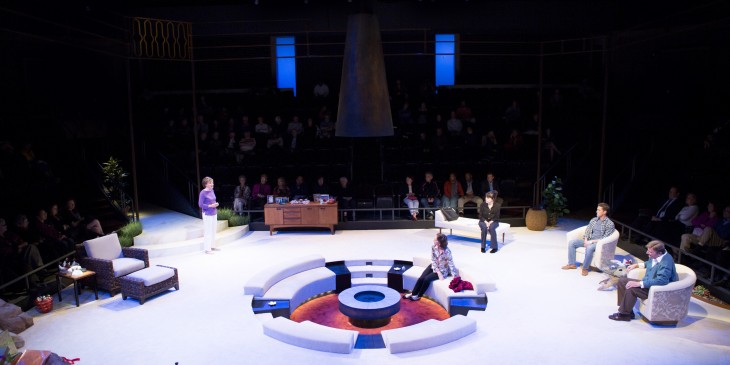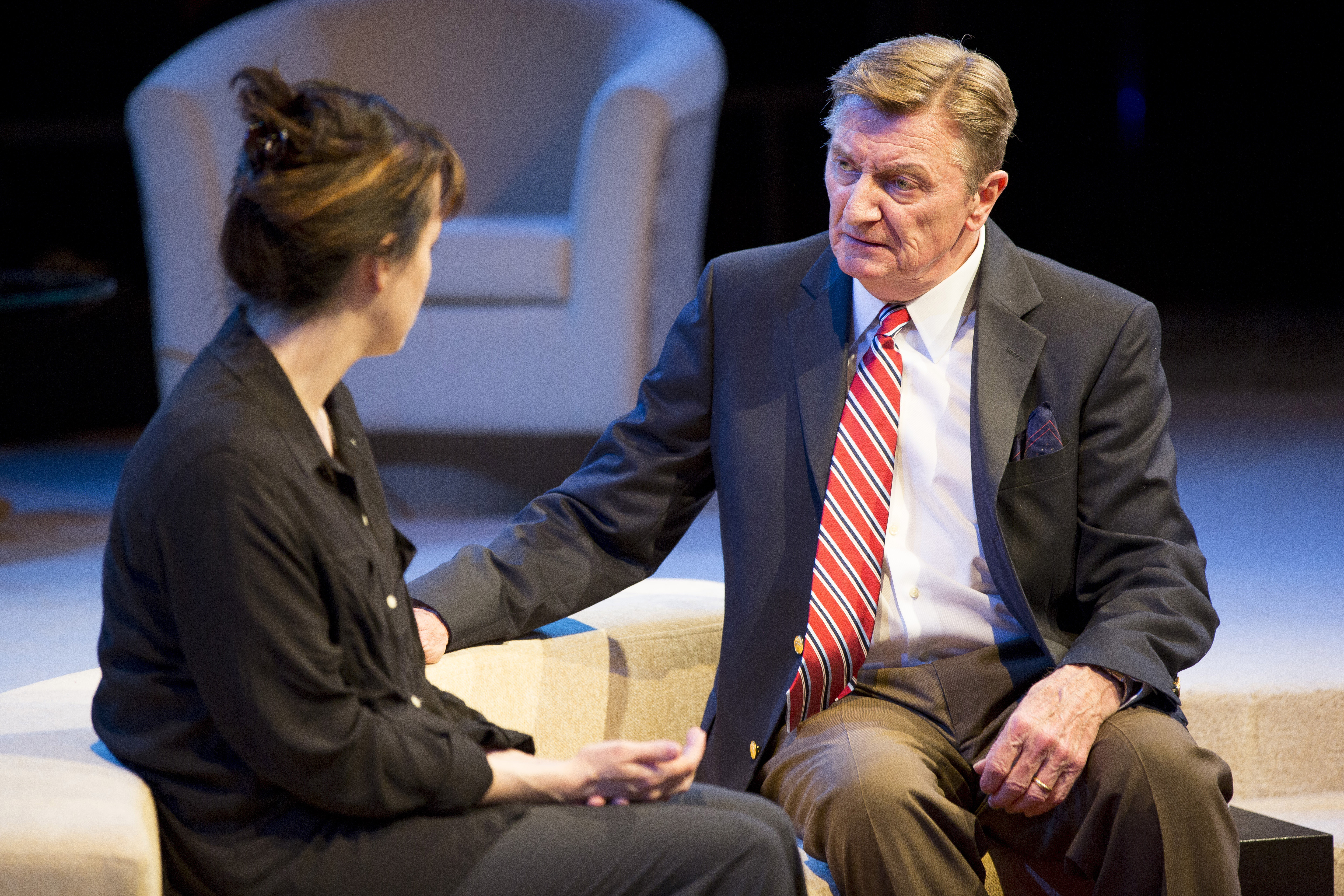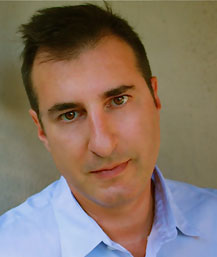“You always hurt the one you love
The one you shouldn’t hurt at all
You always take the sweetest rose
And crush it till the petals fall”
Song by Roberts and Fisher, 1944
 At least three different times during Jon Robin Baitz’s sublime play “Other Desert Cities,” characters preface an oncoming barrage of (not necessarily inaccurate) verbal toxins by saying, “You know, I love you very much, but….” It’s the parts after the “buts” that reinforce the fact that no can hurt us , crush us, as profoundly as our own family members. The Wyeth family of Palm Springs, California is about to spend the Christmas holidays gut-stabbing each other with barbs that soar through the air like poison tipped spears. That they love each other makes no difference—at least not in the moment.
At least three different times during Jon Robin Baitz’s sublime play “Other Desert Cities,” characters preface an oncoming barrage of (not necessarily inaccurate) verbal toxins by saying, “You know, I love you very much, but….” It’s the parts after the “buts” that reinforce the fact that no can hurt us , crush us, as profoundly as our own family members. The Wyeth family of Palm Springs, California is about to spend the Christmas holidays gut-stabbing each other with barbs that soar through the air like poison tipped spears. That they love each other makes no difference—at least not in the moment.
A retirement aged couple, former Hollywood actor/writer types who are active Republicans, have their adult children visiting on Christmas eve day. When these two talk about their friends “Nancy” and “Ronnie” they don’t even have to say the last name. Their long suffering liberal daughter, Brooke, is in from back east and has just written a tell-all memoir that has been picked up by a major publisher. Ostensibly, she wants her parents’ approval before the book goes to press, but just the idea that she may have told some family secrets is enough to send the family swirling in a pool of accusations and counter-accusations that could ruin reputations, if not lives. Only the brother, played with perfect comedic timing by Scott Drummond, is able to stand in the storms center, where the winds are calm. His deadpan one-liners help temper the intensity of the noisy parents vs. daughter match.
 Brooke is convinced that it was her parents’ conservative ideals and animus toward her deceased older brother that caused him to get into trouble with the law and take his own life. She is convinced that she knows everything, but does she? Will revealing one family secret lead to a tumbling Jenga tower of other hidden stories? And which is more moral—to tell the truth and hurt, or withhold the truth and help? These questions are asked and answered in the two-act play that deftly mixes in biting humor with devastating revelations. Baitz’ dialogue crackles with the indignant undertone of self-righteousness that can only be spoken by someone who feels wrongly accused. And that includes pretty much the entire cast.
Brooke is convinced that it was her parents’ conservative ideals and animus toward her deceased older brother that caused him to get into trouble with the law and take his own life. She is convinced that she knows everything, but does she? Will revealing one family secret lead to a tumbling Jenga tower of other hidden stories? And which is more moral—to tell the truth and hurt, or withhold the truth and help? These questions are asked and answered in the two-act play that deftly mixes in biting humor with devastating revelations. Baitz’ dialogue crackles with the indignant undertone of self-righteousness that can only be spoken by someone who feels wrongly accused. And that includes pretty much the entire cast.
As the Patriarch, Lyman, actor Larry Bryggman ( a familiar face to anyone whose watched the soaps over the years) brings just the right tone—not only do you believe him in his character’s more recent jobs in politics, but you can easily picture him in his former jobs as an ambassador and an actor. Now, that’s deep. Helen Carey, as the wife and mom, Polly, has the good posture and cynically crossed arms of a lady who will NOT be pushed around. Her perfectly fitted clothes and her hairstyle give her the resemblance of Laura Bush, but with a more forward leaning gait. Polly’s sister, Silda Grauman, played by Martha Hackett is like a human whack-a-mole: she pops up, says something hilarious and pops back down. Hackett refuses to fall in to the easy clichés of a “drunk” performance, and it would’ve been great to see more of her character. Then again, it’s the rhythm of the character’s appearances that is appealing, and more stage time would surely dilute that irresistible spice she sprinkles on the stage.
 Speaking of the stage—it’s a big and beautiful family room, with a southwestern flavor and a sunken, circular sitting space around a fire that’s inviting—right out of the pages of Home & Garden magazine.
Speaking of the stage—it’s a big and beautiful family room, with a southwestern flavor and a sunken, circular sitting space around a fire that’s inviting—right out of the pages of Home & Garden magazine.
It may be too much stage for the intimate story, perhaps explaining the nearly ceaseless walking and talking the characters do. After two acts, these folks have covered a lot of real estate on foot without ever leaving the room—at least the audience, seated in-the-square (the stage isn’t technically in-the-round in the Fichlander) gets their chance to see the action up close at one point or another during the play.
If there is a minor quibble it may be that there’s too much of a good thing—in the second act especially, Baitz has given each of his characters a “solo” moment. Like the leader of a jazz band, Baitz has written in lengthy monologues, a chance for each character to lay it all out there. Once we realize that all the players are going to get their solo, a glance at one’s watch is inevitable—after all, the characters have been well fleshed out before intermission.
Except for….the “twist.” It turns out that there’s more to the story than we, and some of the characters, knew. Once revealed, we are forced to re-check our feelings for some of the characters. Brooke, by the way, is a character with whom many of us will instantly identify, but a little of her goes a long way; By the second act, we’re losing patience. This is no reflection on actress Emily Donohoe, who is surely doing what she’s supposed to. But, oy!
After the play’s conclusion, as the actors come out for their curtain call, a 1988 song by Brian Wilson plays in the house.
“ Love and mercy that’s what you need tonight
So, love and mercy to you and your friends tonight”
We already knew the characters loved each other. Watching them struggle for the ever elusive ‘Mercy’ is what makes “Other Desert Cities” such a wonderful portrait of the laughter and tears that only families can elicit from each other.
“Other Desert Cities” continues you Arena Stage through May 26th, for tickets and information, and to see Q&A’s with the stars, please visit: http://www.arenastage.org/shows-tickets/the-season/productions/other-desert-cities/



